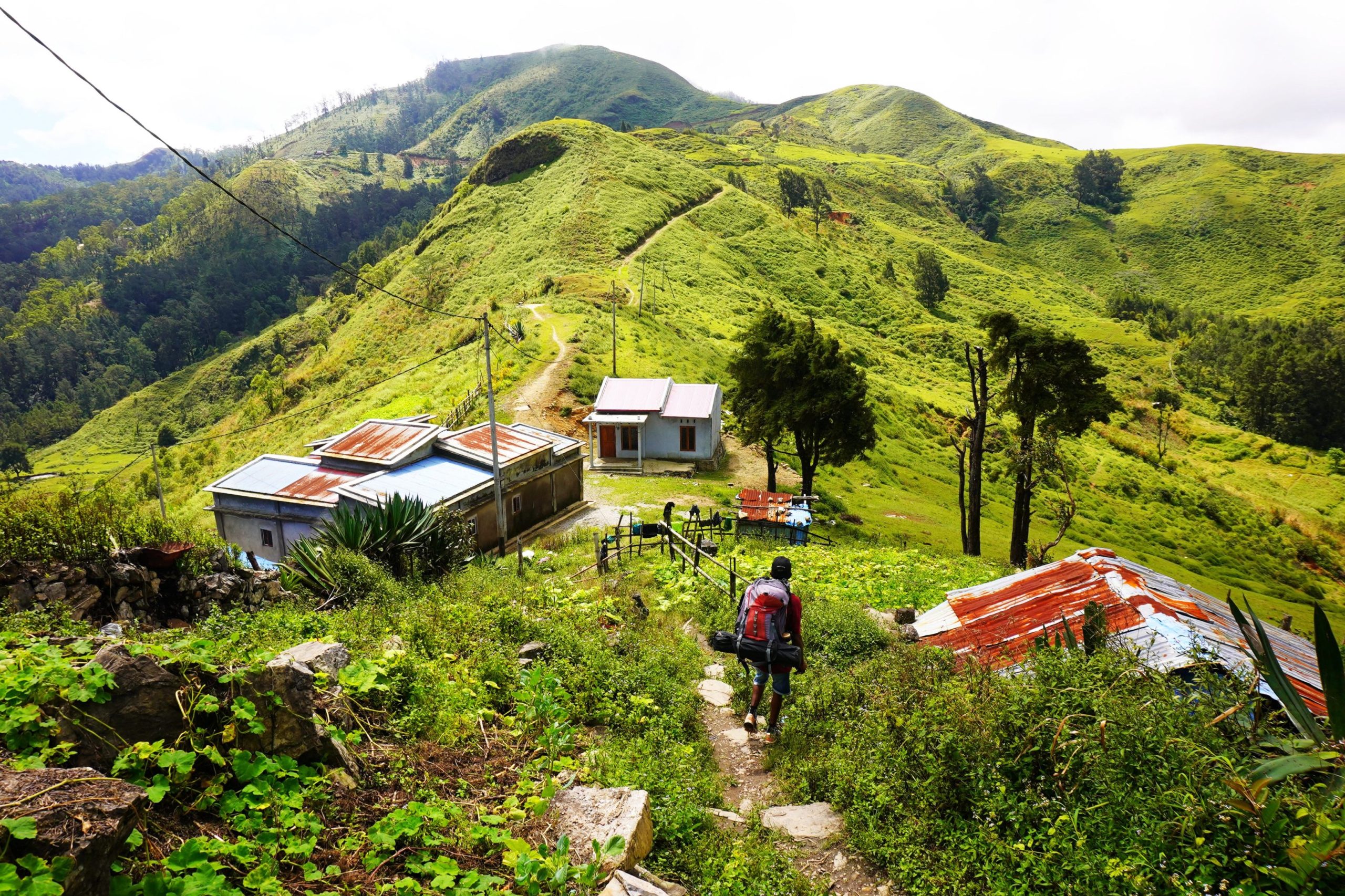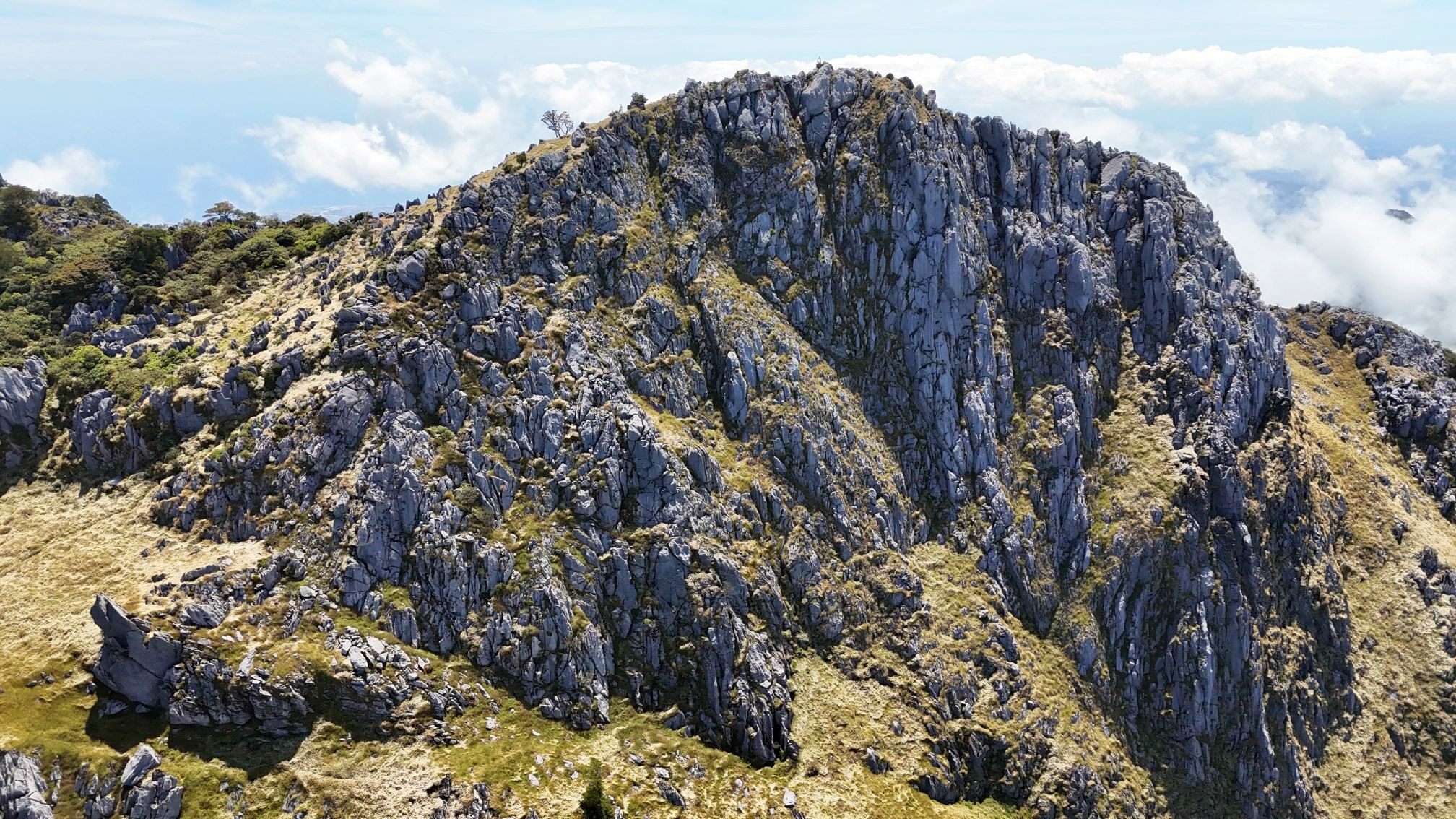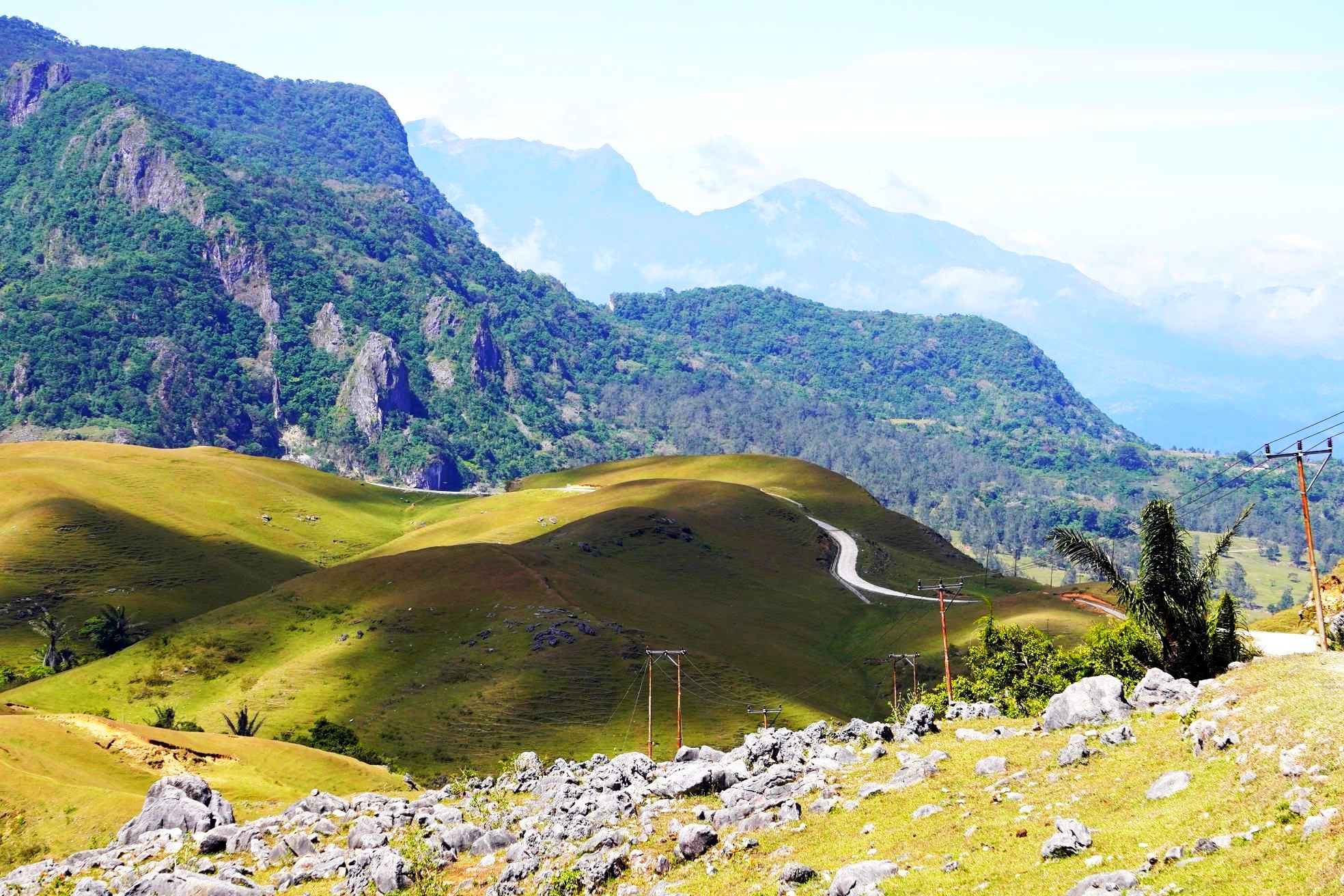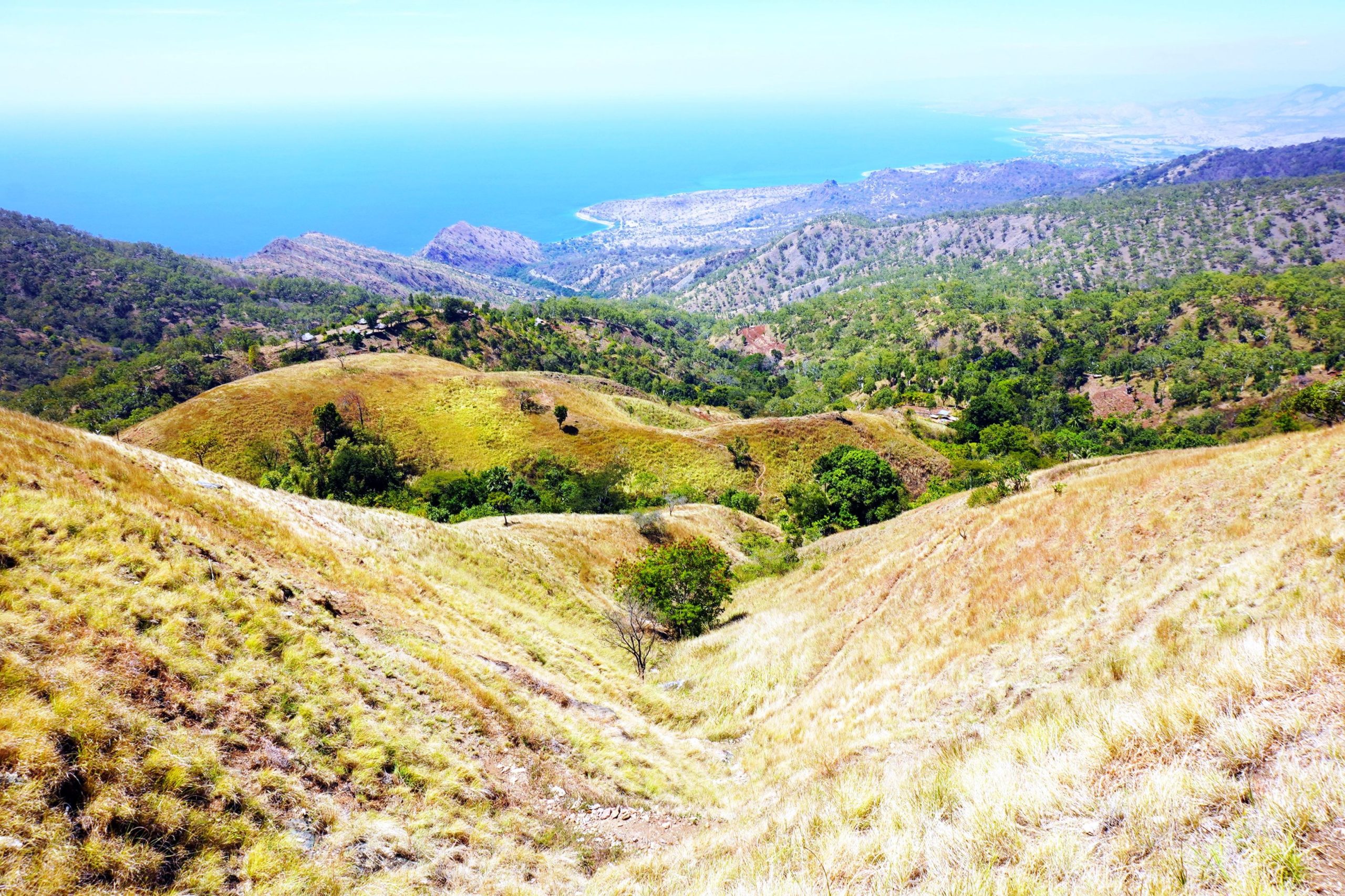Adventure awaits hiking 46km through dramatic landscapes
This hard 3 day hike (including two ½ days of travel) involves ~1,700m of ascent and ~2,800m of descent as you walk between Ainaro and Manufahi municipalities through spectacular scenery, including visiting the remote place where Timorese hero Nicolau Lobato was killed by Indonesian forces in 1978.
ENQUIRE NOW
Day 1 » Mt Saboria » Mt Cuilirqince » Mt Rabilau » Kanurema
8am Enjoy the mountain scenery of Aileu and Ainaro on the 3 hour drive to close to Mt Saboria. On a clear day Mt Saboria offers great views of the 2,986m Mt Ramelau, the highest point in Timor-Leste. From here we follow the ridgeline to Mt Cuilirqince to the Maubisse area before climbing to the shrine at the summit of Mt Rabilau. It is then all downhill to our Kanurema campsite in the shadow of Mt Rabilau.
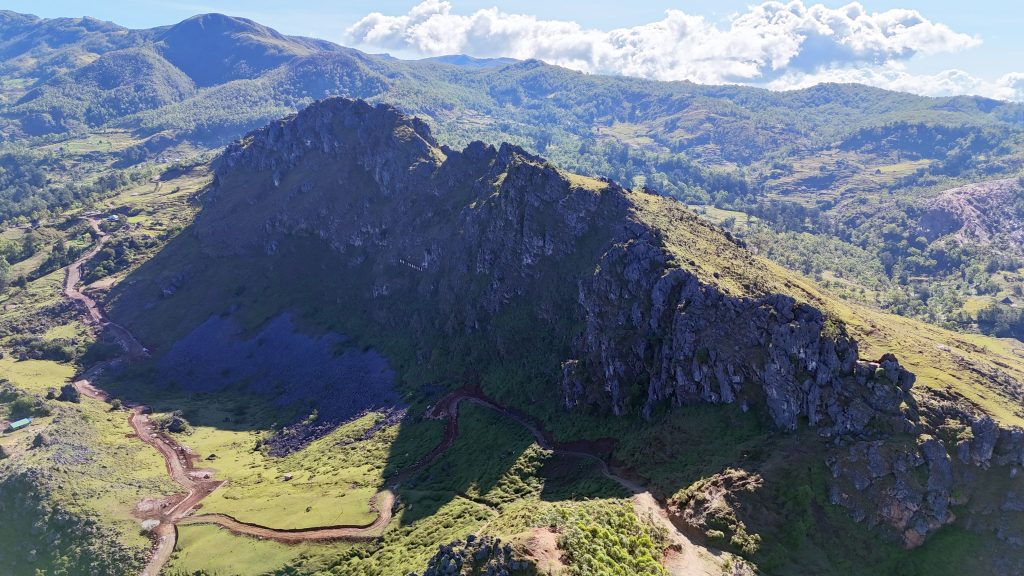
Duration:6 hours Distance:11.5km Elevation:up 354m down 1,063m


Day 2 » Kanurema » Mt Hebau » LACLO
A long but rewarding day crossing from Ainaro into Manufahi, with varied scenery and a decent climb and descent to and from the summit of Mt Hebau. You will see lots of coffee being grown, one of Timor-Leste’s largest exports, as well as walk through welcoming and interesting small villages along the way.
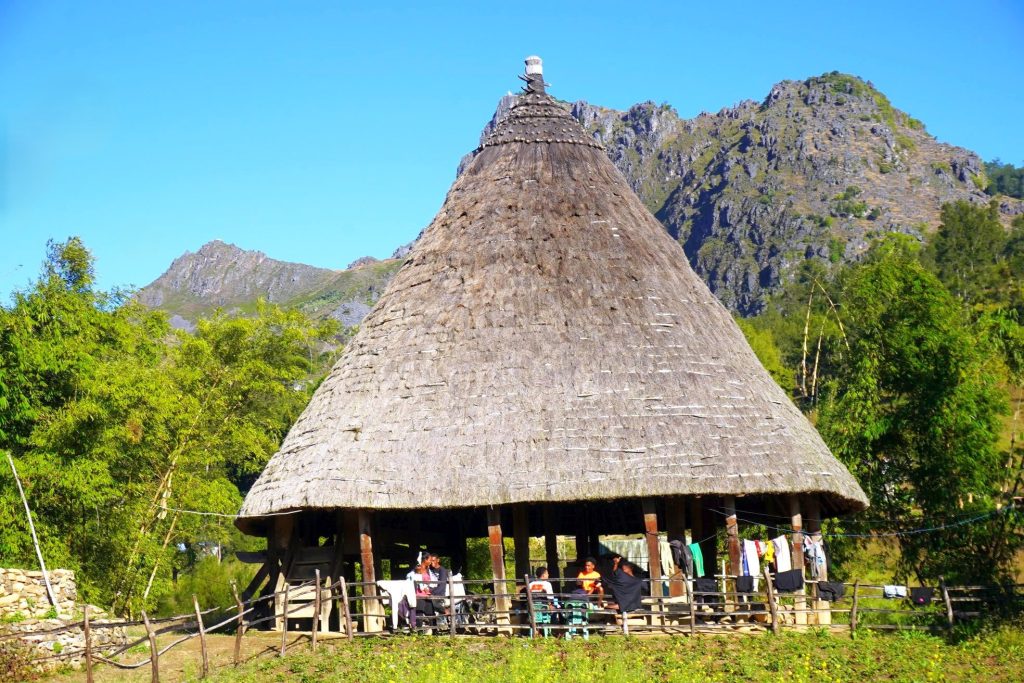
Duration:8 hours Distance:18.4km Elevation:up 658m down 1,120m

Day 3 » Laclo » Mindelo » DILI
Possibly the hardest day of the hike through a very remote area, in which visitors are a rarity. A long descent along rough tracks leads to the site where Timorese hero Nicolau Lobato was killed by Indonesian forces in 1978. Have a rest and enjoy the views on the scenic 5 hour drive back to Dili, arriving in the evening.
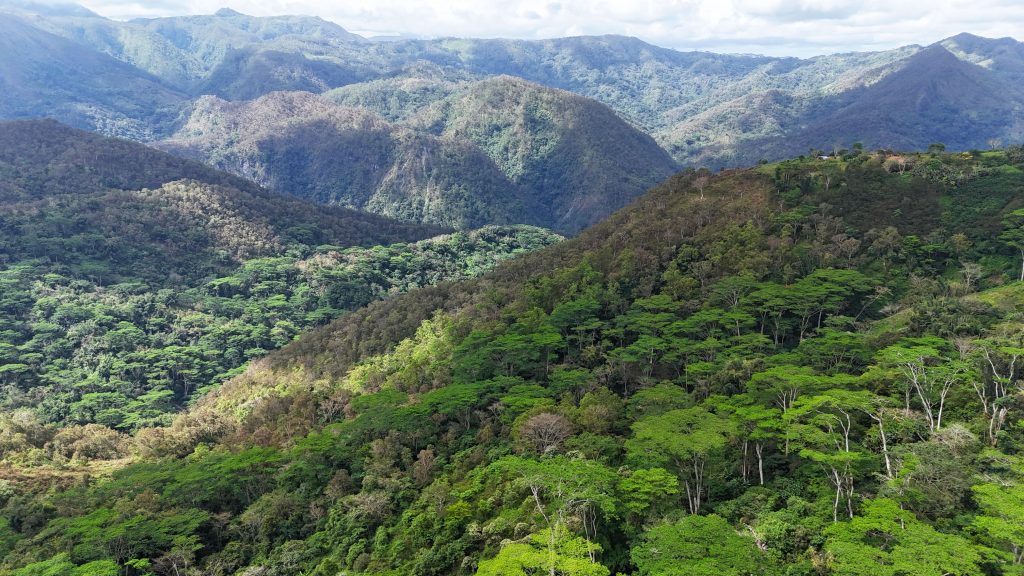
Duration:6 hours Distance:15.8km Elevation:up 914m down 889m


TERMS AND CONDITIONS
Price
TBC please inquire as it varies based on the number of people
Inclusions
- 3 day tour
- 2 nights camping
- All meals during the hike
- Water, tea and coffee
- 4WD vehicle
- Vehicle back up service
- English speaking driver / guide
- Experienced hiking guide
- Support crew
- Tent
- Sleeping bag, blankets, and basic sleeping mat
Exclusions
- Any other drinks
- Any other personal items
Payment
- Confirmation of tour services for groups not less than 21 days prior to tour commencing.
- 20% deposit of total invoice is due at time of confirmation.
- Full payment of invoice due immediately if notice of confirmation is less than 14 days prior to tour commencing.
Cancellation
- The deposit, being 20% of total invoice is forfeited if cancelation is notified less than 7 days.
Important notes
- Basic sanitation while camping, cold showers, bush toilet during hike
- Passport must be valid for at least 6 months upon entry
- 30 day tourist visa granted on arrival for US$30 (cash only, bring with you as there is no accessible ATM at the airport)
- Mastercard is only accepted at BNU ATMs, nowhere else in Timor-Leste
- Currency is in USD, bring USD $5, $10 and $20 notes, or use ATM in Dili
- Timor-Leste coins (5c, 10c, 25c, 50c, $1, $2) are used widely and available only in the country
What to expect
Hiking in Timor-Leste is always an experience, but to enjoy it you need to be prepared.
Climate
Timor-Leste is a hot place to hike. Around the coast expect day time temperatures above 30C all year round, and even in the mountains it is commonly above 20C, and feels hotter in the sunshine. The best months to hike in Timor-Leste are June and July, when it is slightly cooler, and dry, while still retaining some of the lush greenery from the wet season. Toward the end of the dry season in September the landscape is dusty and parched.
Heat stroke is probably the biggest risk while hiking in Timor-Leste. At worse heat stroke can cause death, but even mild heat stroke can cause headaches and vomiting. The combination of heat, humidity and hills, is challenging as sweating is not effective in cooling down the body. These are good approaches…
- Drink a lot of water, more than you may be used to drinking. Dehydration is a risk given the amount that you are likely to be sweating. If you don’t need to go to the toilet, then you’re not drinking enough.
- Add electrolytes / hydrolytes to your water. You can buy these cheaply in pharmacies and they provide your body with a welcome boost of sugar and salts to help replace what is lost through sweating.
- Shade is essential to help your body cool down. Sunhats are a must, along with resting regularly in the shade.
- Wearing a wet cloth around the neck, wetting your hat or shirt, or pouring water on the back of your neck are all effective and refreshing!
Terrain
The hike is mostly on rough tracks used by locals, with some dirt road walking in places. There aren’t really any managed hiking tracks in Timor-Leste like you may find in other countries. There is almost no signage either, and often a multitude of tracks make it easy to get lost without closely following a map or a local guide.
Nearly half the land in Timor-Leste is at a slope of 40 degrees or more, so expect to generally be either going up or down a steep hill. Soils are often easily eroded by rainfall so expect loose stones underfoot as standard, but tree roots aren’t an issue. When walking along roads locals walk in the same direction as traffic, i.e. on the left-hand side, and drivers will use their horn if they’re approaching closely from behind.
There may be some river crossings required. Later in the dry season rock hopping is usually possible, but in some places this may not be possible. Either remove your boots, or cross in them, as they dry quickly in the hot climate.
Wildlife
Although Timor-Leste is home to poisonous animals and plants, you are highly unlikely to come across them while hiking. Snakes are rarely seen. The biggest risk is from mosquitoes carrying Dengue or Chikungunya, so take suitable precautions, particularly at the start and end of the day if hiking in the wet season or early in the dry season.
The most common animal you’ll come across hiking are dogs, which are almost guaranteed at every Timorese house. They are likely to bark, much less likely to bite, but care should be taken. As a general rule of thumb, the more remote the house, the greater the reaction. Rabies had been eradicated from Timor-Leste, but there was a localised outbreak in western Timor-Leste in 2024. It is best to move quickly (but not run) past dogs, and the following approaches can be taken in order of escalation…
- Ignore them, avoid eye contact
- Get the attention of their owner by calling out bondia (good morning) or boa tarde (good afternoon)
- Reach down to the ground to pick up (or look like you are picking up) a rock or wave a hiking stick
Accommodation
All our multi-day hiking trips are camping, but with a Timorese flavour! Campsites are not that common, but every village has a school and local government offices. With permission from the leader of the local community we may camp at these sites. They provide good shelter and usually have toilet and washing facilities available.
Food
There are very few shops in the areas in which we hike, and cooking facilities are limited to the gas cookers we bring with us, so expect simple but tasty and filling meals. Breakfast may be muesli, eggs, and fresh bread. Lunch is cooked on the go, and may be noodles, eggs, cheese and bread. Popcorn may be made as a pre-dinner snack. Dinner may be rice, meat (usually chicken), tinned tuna, and whatever vegetables we can buy locally. If you have any dietary requirements or requests please let us know.

Water
Our support vehicle will always have sufficient drinking water, usually in 1.5 litre bottles, so you can resupply at the start and end of each day.
Toilets and washing
Most of the sites we camp at will have some toilet and washing facilities, but expect them to be basic. Squat toilets and bucket showers are standard. You may want to bring jandals to wear. If there is no toilet available the crew will dig a hole and erect a toilet tent.
Support crew
A typical support crew will include a lead hiking guide, driver, and a supporting crew who will carry the lunch and cooking gear during the day. Tipping is not expected but would be welcomed by the team.
Mobile phone coverage
Mobile phone coverage is limited outside of the main towns and larger villages. Of the three local providers, Telemor tends to have the best coverage.
Charging devices
Devices can be charged using the support vehicle USB ports, and some of the places we camp may have mains electricity.
Typical day
Up around 6am, breakfast, pack up camp, and start hiking between 7.30am and 8am. Lunch is around noon. Arrive at camp between 4pm and 5pm. Dinner around 7pm.
What to bring
- At least 3 litre capacity bottles and / or camelbak, if not more so you can carry sufficient water for a full day hiking in the heat
- Hiking poles
- Decent hiking shoes with good grip
- Sun hat
- Electrolytes / hydrolytes to help rehydrate
- Snacks
- Sleeping bag liner
- Inflatable mattress
- Inflatable / travel pillow
- Insect repellent
- Sun lotion
- Umbrella to protect from the sun
- Sitting mat
- Earplugs as night time in Timor can be surprisingly noisy
- Multi-plug travel adaptor with surge protection
- Toilet paper
- Travel towel
- Swimming togs for the hot springs
- Blister packs
- Drone (if you have one, as there are almost no restrictions on flying them in Timor-Leste, and the landscapes are stunning)
- Charging cables for your devices, with a standard USB connection
- Head torch for around camp
- Day pack for hiking, containing water, snacks, camera, etc
- Bag that will go in the support vehicle with everything else. A holdall type bag that weighs less than 20kg is ideal.
Adventure travel
By its very nature, adventure travel involves an element of the unexpected. In remote and developing countries do not expect standards you are used to back at home. Remote areas are sometimes unpredictable and itineraries may need to be altered. To get the most from your tour it is important to be flexible, positive and eager to take on all the challenges that arise. The environments we travel through are fragile and it is our responsibility as visitors to minimise the impact of our presence.
